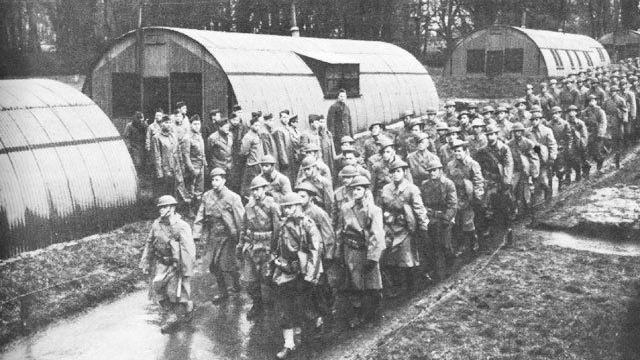The hero dog who parachuted into France on D-Day

Bing received the PDSA Dickin Medal in 1947 for his bravery in service
- Published
When Bing was given to the army by his owners in 1944, it marked the beginning of a "truly remarkable" story.
The Alsatian and collie cross, from Loughborough in Leicestershire, went on to serve with the 13th Parachute Battalion during World War Two and was trained to locate the enemy and protect military personnel.
Bing, who was originally named Brian, was parachuted into Normandy, France, during the D-Day landings in 1944 and into the Rhine, Germany, in 1945.
He was awarded the PDSA Dickin Medal - the animal equivalent of the Victoria Cross - in 1947 for his bravery in service, and now he has been honoured with a sculpture in his home town.
The metal sculpture in Queen's Park, in front of the Carillon Tower, was unveiled on Thursday, ahead of a Remembrance service there on Sunday.
It has been installed in a flower bed next to the wire mesh sculpture of war horse, Songster, which was unveiled in 2018.
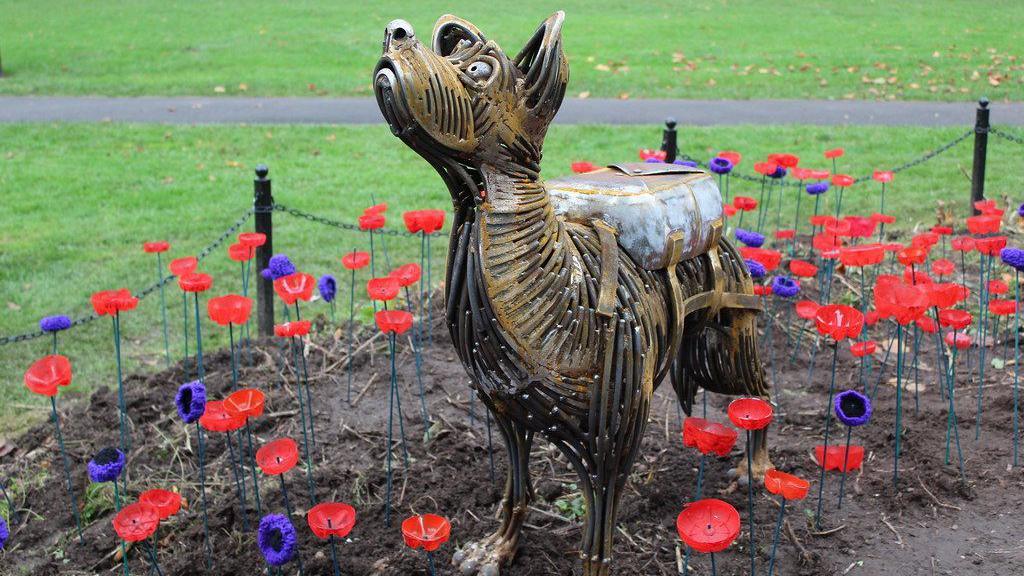
The sculpture of Bing was installed ahead of a Remembrance service
Bing was given to the army when his owners, the Fetch family, could no longer feed him due to rationing.
He was trained at the Army War Dog Training School, in Hertfordshire, before joining the 13th Parachute Battalion, 6th Airborne Division.
Bing was parachuted into the Normandy town of Ranville in June 1944 but the jump did not go to plan, according to the PDSA, and he had to be cut down from a tree, under fire, by fellow paratrooper and handler, Sgt Ken Bailey.
The charity said the two fought side by side for the next few months as they pushed on towards Berlin, and despite sustaining minor injuries, Bing continued to perform his sniffer dog and sentry duties with distinction.
In March 1945, Bing was parachuted into the Rhine and took part in both Operation Plunder and Operation Varsity, which was his last jump, as part of the advance into Germany where he remained on active duty.
During his service, he jumped into action seven times and was returned to the Fetch family at the end of the war.
Bing died in 1955 and was buried alongside fellow PDSA Dickin Medal recipients at the PDSA Animal Cemetery in Ilford, Essex, according to the charity.
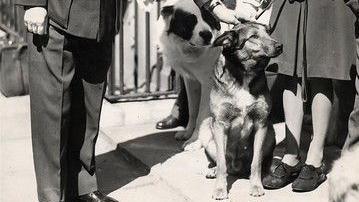
The Mayor of Charnwood said Bing's story was "truly remarkable"
The sculpture of Bing, designed and created by artist Duncan Thurlby, was part of a project led by Loughborough in Bloom and supported by Charnwood Borough Council and the authority's waste and recycling partner, Serco.
After revealing the sculpture, David Northage, Mayor of Charnwood, said Bing's story was "truly remarkable".
He added: "Loughborough has a rich military history and Bing is part of that, along with all the other animals that helped servicemen and women during the Second World War.
"I am pleased that Bing has been installed in front of the Carillon Tower ahead of Sunday's Remembrance service in which we will pay tribute to those who have served in our armed forces and paid the ultimate price to protect our way of life."
Pat Cook, chair of Loughborough in Bloom, added: "We are always looking for ways to pay tribute to our armed forces.
"We wanted to recognise Bing for the amazing work he did during the Second World War and his fascinating story."
Get in touch
Tell us which stories we should cover in Leicester
Follow BBC Leicester on Facebook, external, on X, external, or on Instagram, external. Send your story ideas to eastmidsnews@bbc.co.uk, external or via WhatsApp, external on 0808 100 2210.
Related topics
- Published7 November
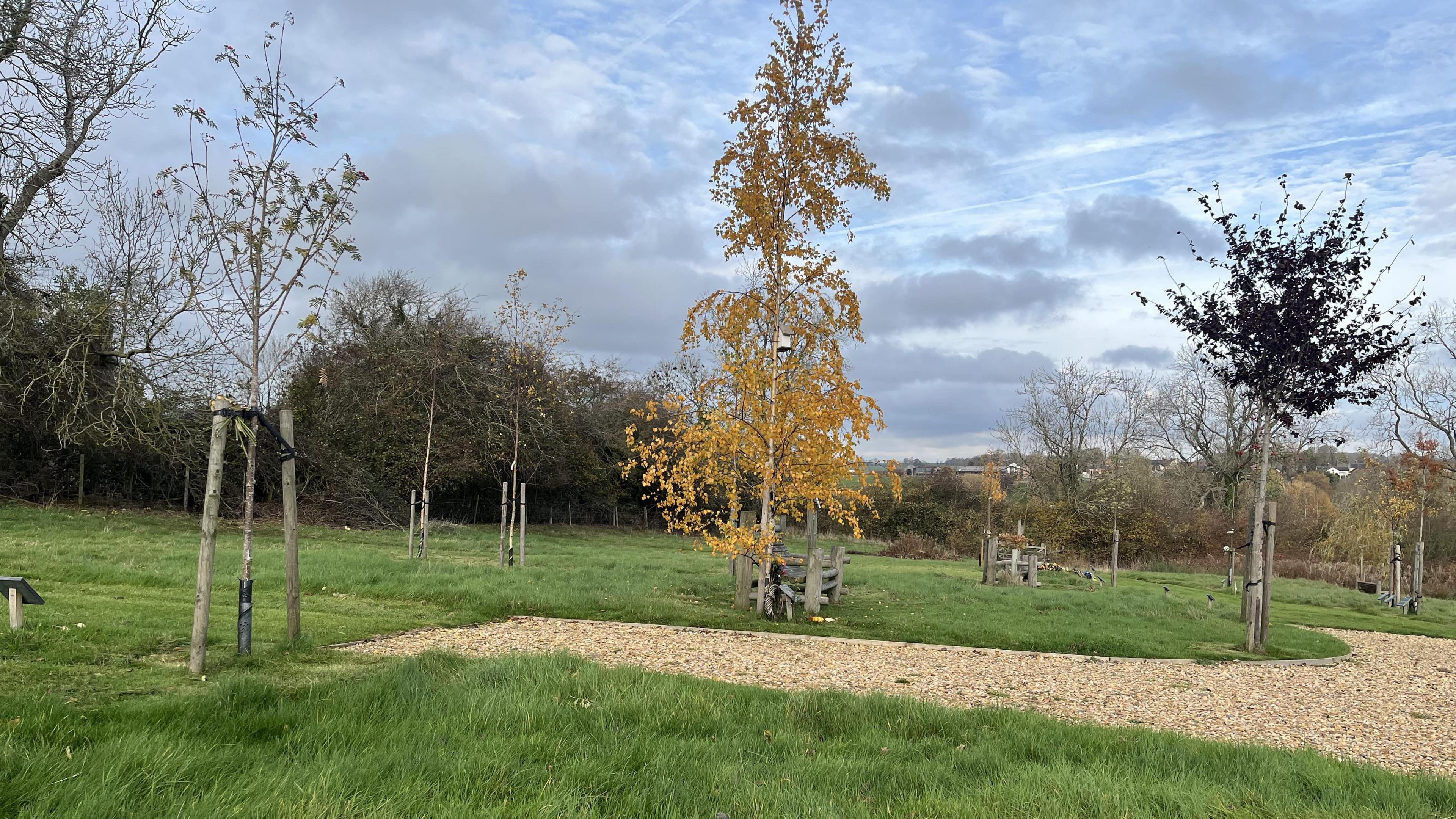
- Published9 September
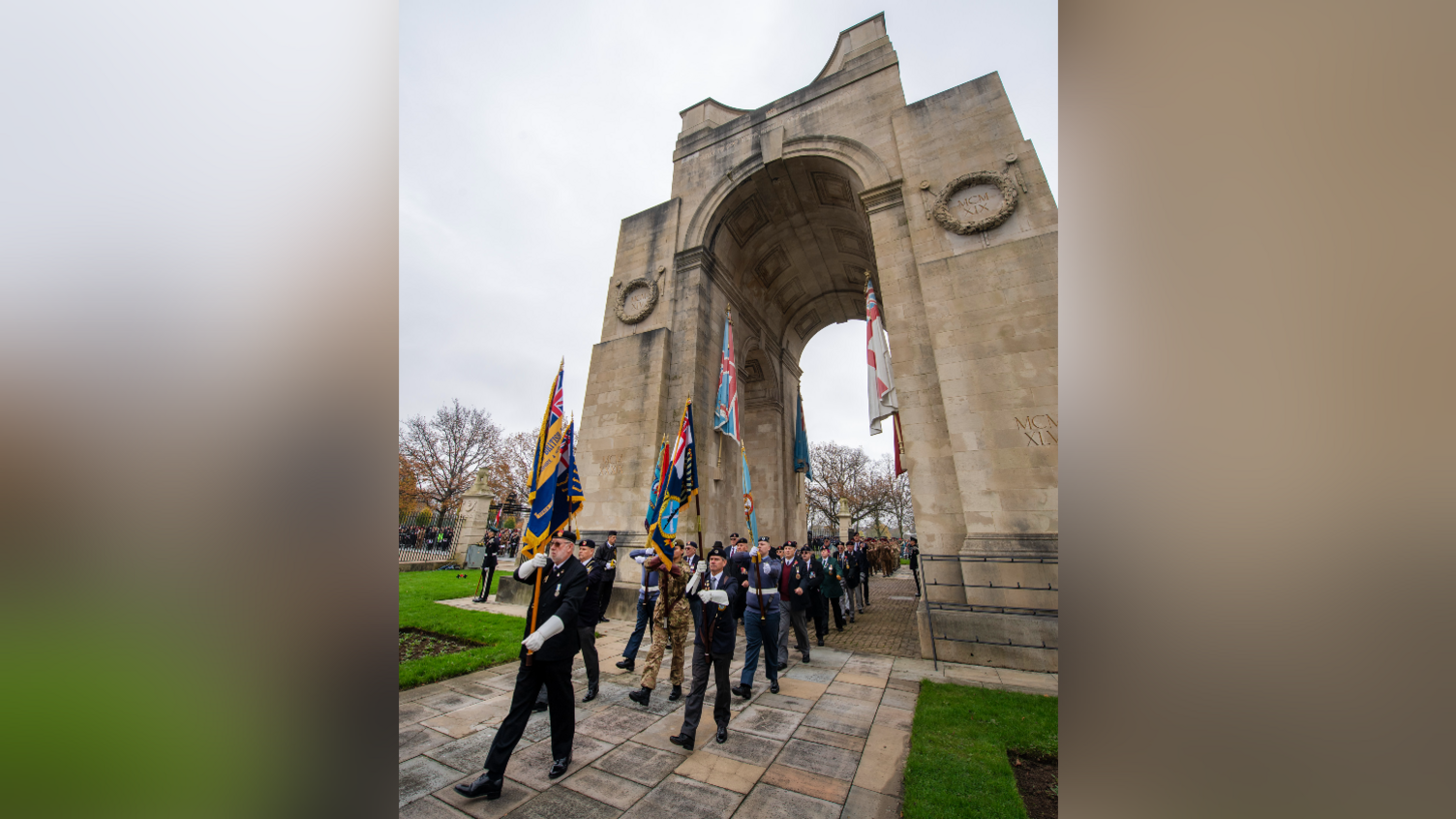
- Published11 August
